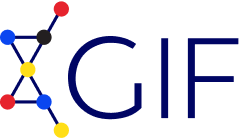Home | Meetings | Upcoming and Past Meetings | GIF Young Scientists Meeting on Hate
GIF Young Scientists Meeting on Tech Middle Powers: Enhancing German-Israeli Cooperation in Science, Technology and Innovation Amidst growing Superpower Competition

Meeting Details
- 18-19 April, 2024
- Bonn, Germany
Scientific Organizing Committee:
– Dr. Gedaliah Afterman (Reichman University, Israel)
– Prof. Dr. Maximilian Mayer ( Universität Bonn, Germany)
Backround:
Increasing geopolitical tensions and shifting regional security architectures have led countries, which are allies and trading partners of the United States and China, to reassess their strategic position. Given the deteriorating political and economic environment, improving policy coordination among these middle powers is crucial to maintaining the imperiled regional and global orders. It is also paramount to manage the ramifications of the more pronounced competition between China and the USA specifically in areas of science and technology.
Goals: Israel and Germany, with their close historical and present ties, and their strong alliances with the USA, are in a unique position to deepen their collaboration amidst this dynamic geopolitical situation. Both are advanced in science, engineering, and technology, including research, development and production of technologies which are crucial for maintaining national security and current regional orders.
Germany is assuming greater political and military responsibilities in the European Union and NATO, while Israel is forging new alliances with Arab countries reflecting its growing role within the Middle East and North Africa Region.
Both countries can derive significant benefits from developing new cooperation on great power management and on handling the growing gravitational pull toward US-China polarization. Geopolitical tensions and shocks adversely affect open and highly connected economies, and particularly the technology, research, and education sectors. To focus on technology and innovation policies is crucial for both countries not only because technologies will decisively impact the future of geopolitical power, but also because the German and Israeli economies share concerning economic and societal vulnerabilities to the increasing superpower competition.
Thematic areas:
- Autonomous Academic Research and Education Policies amidst global technology competition
- Entrepreneurship and Industrial Policies in democratic social market economies – an increased role for the State?
- Rethinking national exposure to globalization, self-reliance and securing supply chains for specific technologies and sectors (such as cyber, energy and space)
- Policy coordination to enable new technologies/infrastructures to address challenges of the climate crisis, pandemics, food security, health services and national security
Leading questions for the workshop: What strategic impacts does the US-China rivalry have on Germany and Israel? What types of reactions and responses exist? What are their options and would hedging still be a viable strategy under the developing geopolitical fissures? In what ways are the policies and politics of science, technology, and innovation impacted? What are the implications of existing and future dependencies and vulnerabilities? How could different German regions and federal states such as North Rhine-Westphalia work together with Israeli partners to protect and strengthen their technological leadership? How can Germany and Israel cooperate and lead in specific STEM areas? Can these countries coordinate their technology and innovation policies within and between their environments by creating new mini-and multilateral forums? What kind of strategic tech cooperation between the two democracies does already exist in fields such as cyber security, AI/Automation, energy and environmental as well as space technologies? What future fields and potentials for further concrete cooperation can be identified?













